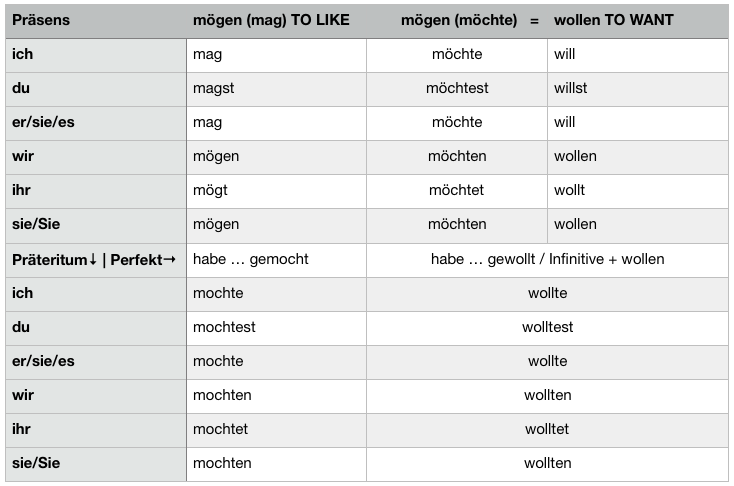My post about the difference between mögen and möchten is the most read of my blog! 😀
In this post I’m going to explain the past tense of these two verb forms.
Remember that möchten is not a real infinitive but the Konjunktiv II (conditional) of the verb mögen.
While ich mag means “I like”, ich möchte means “I would like” or “I want” in a polite way.
So, the main meaning of mögen is “to like“, hence the past of mögen → ich mochte (without Umlaut dots!) means “I liked”.
Möchten does not have an “own” past tense because it is only a verb form of mögen.
We use möchten when we want to order/ask for something in a polite way or when we express a wish. Thus, talking about an order/request or wish in past tense, the politeness obviously does not matter anymore. 😉
This is why the past tense of ich möchte is ich wollte.
It is just the same as in English when we change the expression “I would like a tea” to past tense: “I wanted (or ordered) a tea.”
Complete Conjugation
In the following table you can observe the conjugation of present and past tense of mögen (to like) in the left column.
On the right side you can see ich möchte and ich will whose basic meaning is the same (to want), thus they have only one past tense form:

In Perfekt tense, remember that the modal verbs have 2 different forms depending on if used
- without infinitive (Ich habe das nicht gewollt).
- with infinitive (Ich habe das machen wollen).
Summary
The past tense of “Ich möchte (gern) ins Kino (gehen)” is “Ich wollte (gern) ins Kino (gehen)“.


